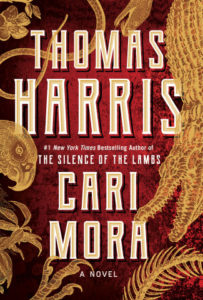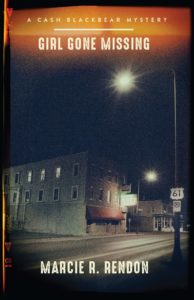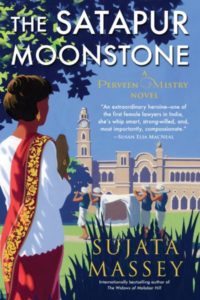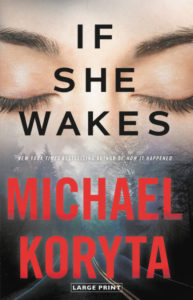At the start of every month, CrimeReads staff members look over all the great crime novels and mysteries coming out in the weeks ahead and make recommendations based on what they’re reading and what they can’t wait to read. Check back over the course of the month for more suggestions for feeding your crime habit.
Juliet Grames, The Seven or Eight Deaths of Stella Fortuna (Ecco)
I love sweeping family dramas, especially when they’re as full of intrigue, insight, and near-fatality as Juliet Grames’s debut. Told from the perspective of an unnamed granddaughter intent on understanding the mysterious hatred between 100-year-old Stella and her younger sister, the narrative takes us from Calabria to Connecticut as the family journeys from Italy to America in the 1940s, the life of headstrong and self-possessed Stella reconstructed through her many near-death experiences. This messy, complex, and intoxicating tale is as haunting as it is heartening, and these characters are sure to be remembered for a long time. –Camille LeBlanc, CrimeReads editorial fellow
Sara Collins, Confessions of Frannie Langton (Harper)
Sara Collins knows her history—and her confessional narratives—very well. In this gorgeous piece of historical fiction that also happens to be an incredibly self-assured debut, a woman about to be executed for the murder of her employer recounts the story of her life, and how she went from enslaved on a Caribbean plantation to employed as a maid by the woman who would become her lover. Through her willful and brilliant protagonist, Collins confronts the indignities of servitude, great and small. Also, both Emma Donahue and Lyndsay Faye blurbed it, so this one is officially approved by historical fiction royalty. –Molly Odintz, CrimeReads associate editor
Chris Pavone, The Paris Diversion (Crown)
Pavone returns with a new espionage tale featuring the heroes of his first novel, 1992’s The Expats, Kate and Dexter Moore. Now living in Paris, former CIA agent Kate is the head of her own top secret unit, a job she juggles alongside being mother to two small children. Cybersecurity expert Dexter has also set up shop in Paris, and the two are working to mend their frayed marriage. When a suicide bomber strikes at the Louvre, Kate goes on high alert, and other threats quickly surface. Can she get to the bottom of the citywide attacks and still make school pick up? –Lisa Levy, CrimeReads contributing editor

James Ellroy, This Storm (Knopf)
A new Ellroy novel doesn’t come around often, so it’s important to stop and savor the moment. The Black Dahlia was a seminal book for me—one that showed me what crime fiction could do and what the genre could mean. I’ve been a devotee ever since, reveling in the Underworld USA trilogy and generally going down every twisted rabbit hole Ellroy wanted to take me down. His most recent work, including 2014’s Perfidia, is increasingly feeling like a fever dream of midcentury American history, a tone that pretty well describesThe Storm, a multi-facted, multi-voiced epic about LAPD corruption leading up to WWII. Ellroy’s project brings to mind Roberto Bolaño theories and mythologies surrounding fascism’s transference to the Americas, but with Ellroy the stories are of course steeped in the world of LA’s ‘finest’ detectives. This is, I feel confident saying, a novel we’ll be talking about for a long time to come. –Dwyer Murphy, CrimeReads managing editor
Thomas Harris, Cari Mora (Grand Central)
Another long-awaited return from a grandmaster—Harris hasn’t had a novel out since 2006’s Hannibal Rising. His latest is another penetrating exploration of signature themes—the nature of evil, the persistence of trauma, and the strange, fateful gravity that so often seems to exist between individuals on either side of law and morality. In Cari Mora, cartel loot is hidden underneath a glitzy home on the Miami waterfront, with a refugee named Cari Mora as the home’s caretaker. When word gets out about the money, various villains make their approach, most prominently a killer named Hans-Peter Schneider who specializes in a particularly corrupt form of wish fulfillment. It’s an electric setup, and Harris handles the suspense as finely as you would expect from one of the genre’s foremost practitioners. Cari Mora will keep readers up all night in the best possible way. –DM
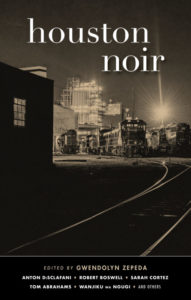
Houston Noir, ed. Gwendolyn Zepeda (Akashic)
As the resident Texan on staff has been trying to convince the rest of the office, Houston is a city on the rise when it comes to crime fiction—something about all those lonely highways, gravity-defying overpasses, and drastic urban sprawl (and of course, the crime rate) make Houston a perfect setting for noir. This port city of close to five million residents is ready for a new reputation as a world capital of literature, and we’re here to support Akashic’s new collection of noir tales from Texas’ most complex city. –MO
Anna Pitoniak, Necessary People (Little, Brown)
The center of Necessary People is a complicated friendship between the rich Stella and the up from rags Violet. Violet is an achiever and a hard worker, and she’s making her mark at the cable news station where she landed an internship as a producer out of college. Flighty Stella is off cavorting with minor royalty and dissolute aristocracy as the novel begins. When Stella returns, however, she also develops a taste for working at the cable station, but she wants to be on-air talent. Pitoniak is a shrewd observer of female attachment and ambition, and People both delivers interesting ideas and chronicles a shocking murder. –LL
Marcie Rendon, Girl Gone Missing (Cinco Puntos)
Marcie Rendon burst onto the crime scene with her debut, Murder on the Red River, in which her pool-shark protagonist Cash takes on a double murder at a reservation. In her second, Girl Gone Missing, Cash is newly at college, and in between pool games and gawking at hippies, Cash begins investigating the mysterious disappearance of a number of blonde women who are fellow students. Marcie Rendon, a member of the White Earth Nation, has previously worked as a community activist and written several works of nonfiction, including two children’s books. –MO
Sujata Massey, The Satapur Moonstone (Soho Press)
The anticipated follow-up to (Edgar winning!)The Widows of Malabar Hill finds Perveen Mistry, Bombay’s only female lawyer in 1920s Bombay, mediating a dispute over the education of a young prince whose family is long-threatened by a curse. Massey combines an expertly-rendered sense of place with a twisty mystery to bring the Sahyadri mountains of western India to life in this richly woven tale of political power plays and revenge. It is sure to satisfy those looking for a new batch of royal infighting in the aftermath of Game of Thrones. –CL
Michael Koryta, If She Wakes (Little, Brown)
In a departure from his usual straightforward action-thrillers, Koryta tries his hand at psychological suspense with excellent results. Tara Beckley is a student at Hammel College in Maine who has a job escorting visiting professors around the idyllic campus. After a car accident kills the professor she’s chaperoning and leaves Tara with the horrific condition of locked-in syndrome (think the Diving Bell and the Butterfly), Tara is sure the collision was not an accident and someone wants her dead. But who could it be, and how can she investigate when the only movement she is capable of is blinking? –LL





